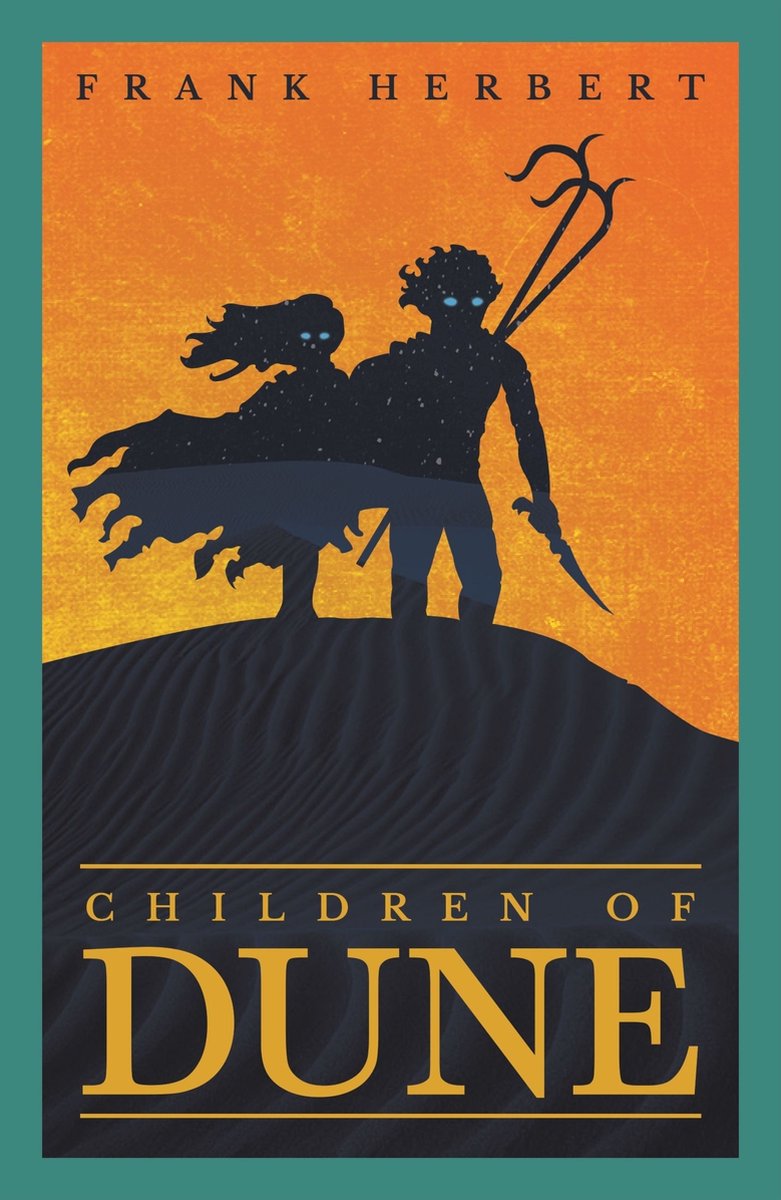Frank Herbert once said ‘I wrote the Dune series because I had this idea that charismatic leaders ought to come with a warning label on their forehead: “May be dangerous to your health”’. At the end of Dune, Paul Atreides is triumphant, but is plagued by ominous visions of the future. Messiah shows the consequences of his actions, and how they lead to his downfall. Children explores how humankind copes without its charismatic leader, and how cycles can often repeat themselves.
The story is the most complex so far, with Herbert again refusing to rest on his laurels and seeming to challenge himself with how the series evolves. There’s a lot of dense and philosophical dialogue, similar to Messiah, but unlike the previous book it isn’t what drives the story, with enough going on between conversations to maintain a reader’s interest. Many familiar characters have return, including the Lady Jessica, Alia, Gurney Halleck, Duncan Idaho, and Stilgar, while the new ones, such as Farad’n, Princess Wensicia, and Leto and Ghanima themselves, are worthy additions.
An observation I’d make is that the series is becoming increasingly insular. The first book had wide ranging themes including ecology, politics, myths, and the nature leadership. While Children of Dune shares those concerns, it is to a greater extent about the fictional world itself. Much of the dialogue discusses the universe of Dune, with little real-life referent, and the characters are becoming far removed from what we consider to be normal humans. It’s not a problem yet, but could become one soon.
Having completed the Great Dune Trilogy (as the first three books are known), I have to say that I’m thoroughly impressed with Herbert’s series. There’s little I’ve read that matches it for scope, ambition, and originality. Children of Dune is so far my second favourite, after the first book. I thought it was tight, intriguing, and built on the first two in ways that worked. There’s a time jump of 3,500 years between this and the next book, God Emperor of Dune, so colour me interested.
Review by Charlie Alcock

 RSS Feed
RSS Feed
